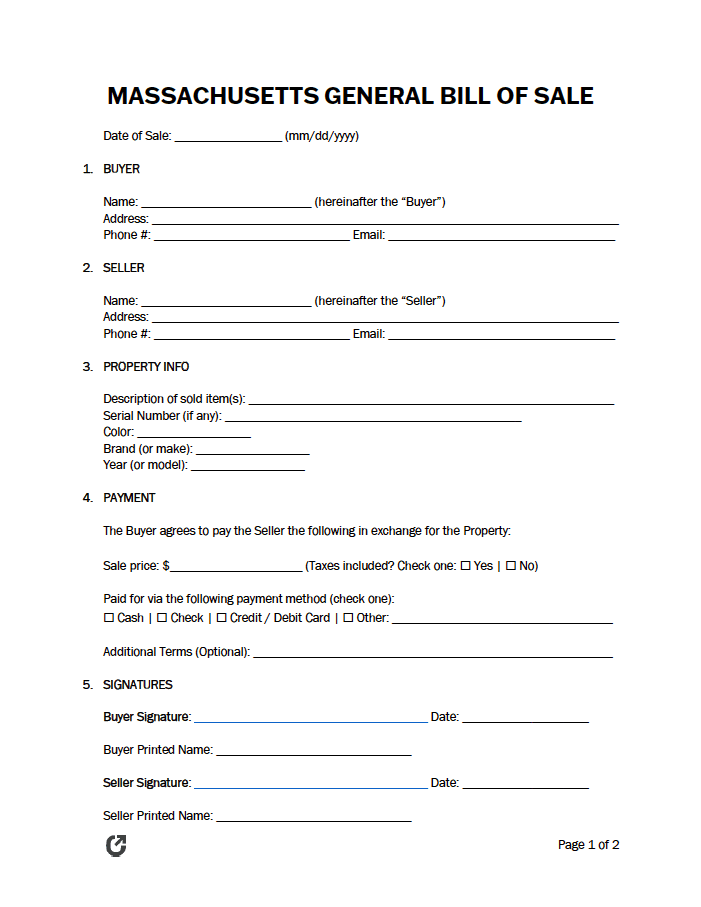Massachusetts General Bill of Sale Form
A Massachusetts general bill of sale form personifies the exchange of a particular item between a buyer and seller. Both parties determine a reasonable selling price, payment method, and transfer mode before formally recording it. The document’s existence implies that each person agreed to the information therein. Furthermore, the buyer purchases it “as-is,” meaning that the seller hands over the object in its current condition. They do not change the item’s mechanics or cosmetic appearance before the transaction or offer warranties.
| Signing Requirements: The vendor and vendee must provide their signatures. |
What is a Massachusetts General Bill of Sale?
A Massachusetts general bill of sale equips a former and current owner(s) with physical proof of business matter that happened among them. Each person can use it to express the terms of the agreement, such as the sale and tax amounts. This information proves critical if the owner registers or titles the property with the state. Otherwise, they can show the bill of sale to verify their ownership if they decide to re-sell the item. The seller also benefits from keeping this document to confirm they do not have liability.
Do You Need a Bill of Sale in Massachusetts?
In most cases, residents do not need a bill of sale in Massachusetts; however, the state always recommends it for legal purposes. Two exceptions apply to this rule: 1) a vehicle owner needs a bill of sale if the title does not have the required information or signatures, and 2) the buyer must present the bill of sale when registering and titling a brand new car. In these instances, the document verifies ownership and provides essential details about the transaction.
Do You Need to Notarize It?
No, a bill of sale in Massachusetts does not require notarization. Nonetheless, a notary public’s signature further validates the information therein. Buyers and sellers benefit because lawyers, court judges, and state offices generally accept notarized forms over standard documents. While also optional, both individuals can have a third party witness the signing, which further validates it in the eyes of the mentioned entities.
